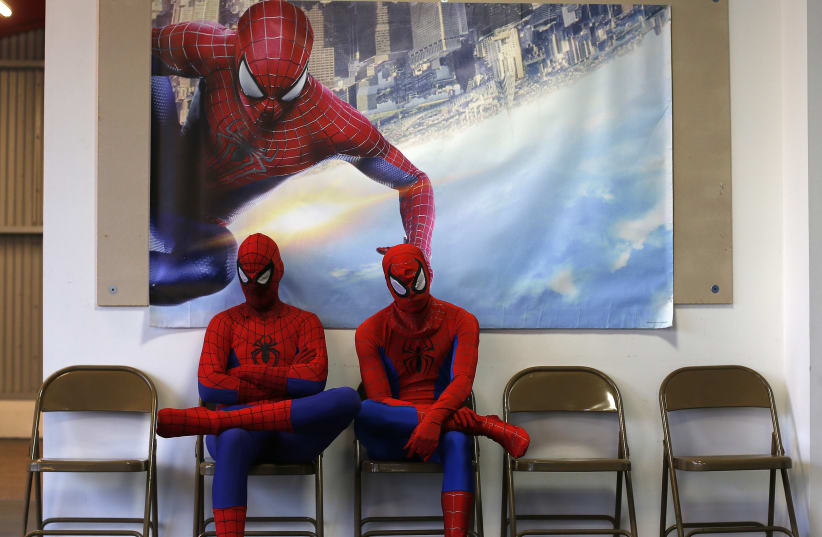Dr. Yaakov Hoffman of the Interdisciplinary Department of Social Sciences at Bar-Ilan University and Prof. Menachem Ben-Ezra from the School of Social Work at Ariel University published their findings this month in Frontiers in Psychiatry.
Part of the study also involved Ant-Man, both characters from Marvel comics and featured in popular new movies.
Two separate groups were shown different video clips, one scenes from Spider-Man and Ant-Man movies, the other the Marvel opening credits scene and nature footage of actual ants and spiders.
"Reduction in phobic symptoms was significant in the Spider-Man and Ant-Man groups in comparison to the control groups," the researchers stated in the journal article synopsis. "Seven second exposure to insect-specific stimuli within a positive context reduces the level of phobic symptoms," they explained."Incorporating exposure to short scenes from the Marvel Cinematic Universe within a therapeutic protocol for such phobias may be robustly efficacious and enhance cooperation and motivation by rendering the therapy as less stigmatic," they added.
Does this mean superhero movies can provide psychological benefits? The two researchers think so, adding such movies can be utilized positively as escapism, and good moral tales of how to confront ones fears.
Prof. Ben-Ezra and Dr. Hoffman hope to continue their studies using the superhero genre to explore the effects on patients suffering from post-traumatic stress disorder.
Spider-Man was created by Stan Lee and Steve Ditko and Ant-Man by Lee, Larry Lieber and Jack Kirby, both in the 1960s. Today, both are featured in Avengers: Endgame, which premiered this week to box-office success and critical praise. Both characters also star in their own movies. In 2018 Spider-Man: Into the Spider-Verse was released and Spider-Man: Far From Home is scheduled for this summer. Anti-Man was released in 2015 and the follow-up Ant-Man and the Wasp in 2018.
